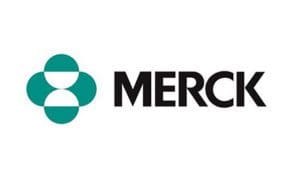 Merck (NYSE:MRK) announced today that it received FDA approval for Keytruda for treating high-risk, early-stage, triple-negative breast cancer (TNBC).
Merck (NYSE:MRK) announced today that it received FDA approval for Keytruda for treating high-risk, early-stage, triple-negative breast cancer (TNBC).
Kenilworth, N.J.-based Merck’s Keytruda anti-PD-1 therapy received approval for use in combination with chemotherapy as neoadjuvant treatment, then continued as a single agent as adjuvant treatment after surgery, according to a news release. Approval was based on the Phase 3 Keynote-522 trial.
Keynote-522 demonstrated that Keytruda, in combination with chemotherapy (carboplatin and paclitaxel, followed by doxorubicin or epirubicin and cyclophosphamide) before surgery and continued as a single agent after surgery significantly prolonged event-free survival when compared against the same neoadjuvant chemotherapy regimens alone.
The FDA also converted the accelerated approval of Keytruda in combination with chemotherapy for treating patients with locally recurrent unresectable or metastatic TNBC whose tumors express PD-L1 as determined by an FDA-approved test. The now full approval is based on data from Keynote-522 after the initial approval in November was based on the Keynote-355 trial.
“Triple-negative is a difficult-to-treat type of breast cancer that unfortunately is more common in the U.S. in younger women and in Black women,” Merck Research Laboratories VP of clinical research Dr. Vicki Goodman said in the release. “We are proud to offer a new treatment option for patients faced with this challenging cancer. This neoadjuvant and adjuvant combination with Keytruda is the first immunotherapy regimen to be approved in high-risk early-stage TNBC, marking a meaningful milestone for the breast cancer community.”